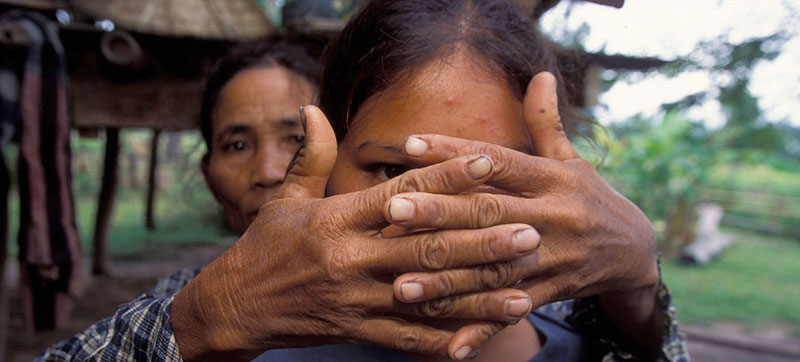 Human Trafficking
Human Trafficking
General Assembly reaffirms commitment to combat human trafficking
New York: The COVID-19 pandemic has exacerbated factors that fuel human trafficking such as poverty, unemployment and gender-based violence, the President of the UN General Assembly said on Monday, urging countries to boost efforts to prevent and respond to this “vile crime”.
Abdulla Shahid was speaking at the opening of a two-day high-level meeting to review progress in implementing the UN Global Plan of Action to Combat Trafficking in Persons, adopted by the General Assembly in July 2010.
Recovery and resilience
Mr. Shahid said the ongoing pandemic has left survivors of trafficking with less support, while countries have been weakened in their ability to identify and hold perpetrators accountable.
“It is imperative that the global community redoubles its efforts to recover better from the pandemic and build resilient communities,” he told Member States.
“This includes obtaining more research, data, and analysis on how this crime is being carried out, how it is evolving, and who it is targeting and impacting. This will allow us to make better decisions on preventative measures and responses."
Pandemic increased vulnerabilities
People of all ages, backgrounds and nationalities can fall prey to human trafficking, which is linked to crimes such as illicit money flows, use of fraudulent travel documents and cybercrime.
Victims include those who are marginalized, or in difficult circumstances, such as undocumented migrants. Others might be desperate for a job or educational opportunities.
Ghada Waly, Executive Director at the UN Office on Drugs and Crime (UNODC), explained that vulnerability has increased during the pandemic due to lockdowns, learning disruptions and loss of livelihoods.
“The COVID crisis has deprived many victims of access to essential services,” she said in a pre-recorded message. “More time spent on line has also led to more exploitation, and to the misuse of technology”.
Women and girls vulnerable
In her remarks, UN Deputy Secretary-General Amina Mohammed pointed out that women and girls are disproportionately targeted for trafficking. They are forced into marriage, including child marriage, as well as domestic servitude and forced labour.
Children are increasingly targeted by traffickers, she said. They are using social media both to recruit new victims and profit from the demand for child sexual exploitation material.
Ms. Mohammed said that ending human trafficking requires supporting countries in building strong legal institutions and frameworks to respond to the crime.
“Survivors should be at the centre of policies to prevent and counter human trafficking, to bring perpetrators to justice and provide effective access to remedies, including compensation,”she added.
Amplify survivors’ voices
Mr. Shahid, the UN General Assembly President, acknowledged survivors participating in the meeting, saying that their mere presence “testifies to the fortitude of the human spirit”. He stressed the importance of listening to them.
Malaika Oringo from Uganda, founder of an organization called Footprint to Freedom, read quotes from survivors who want their narratives to feed into policies and response to dismantle human trafficking. She urged countries to draw on their experience.
“Because survivors know first-hand the tactics, the strategies, that traffickers use to bind victims into slavery, for this reason I call you all, Member States, to leverage survivor wisdom and invest in survivor leadership,” she said.
Reaffirming commitment
Ms. Oringo outlined several recommendations put forward by survivors, including shifting from “symbolic” engagement to meaningful partnership, and improving how victims are treated in legal proceedings.
Following the opening ceremony, countries adopted a political declaration reaffirming their commitments under the UN Global Plan of Action.
They expressed solidarity with victims and survivors, and recognized their role as “agents of change” in the global fight against human trafficking, while acknowledging the need to incorporate their perspectives and experience in efforts to prevent and combat the crime.
Support Our Journalism
We cannot do without you.. your contribution supports unbiased journalism
IBNS is not driven by any ism- not wokeism, not racism, not skewed secularism, not hyper right-wing or left liberal ideals, nor by any hardline religious beliefs or hyper nationalism. We want to serve you good old objective news, as they are. We do not judge or preach. We let people decide for themselves. We only try to present factual and well-sourced news.







